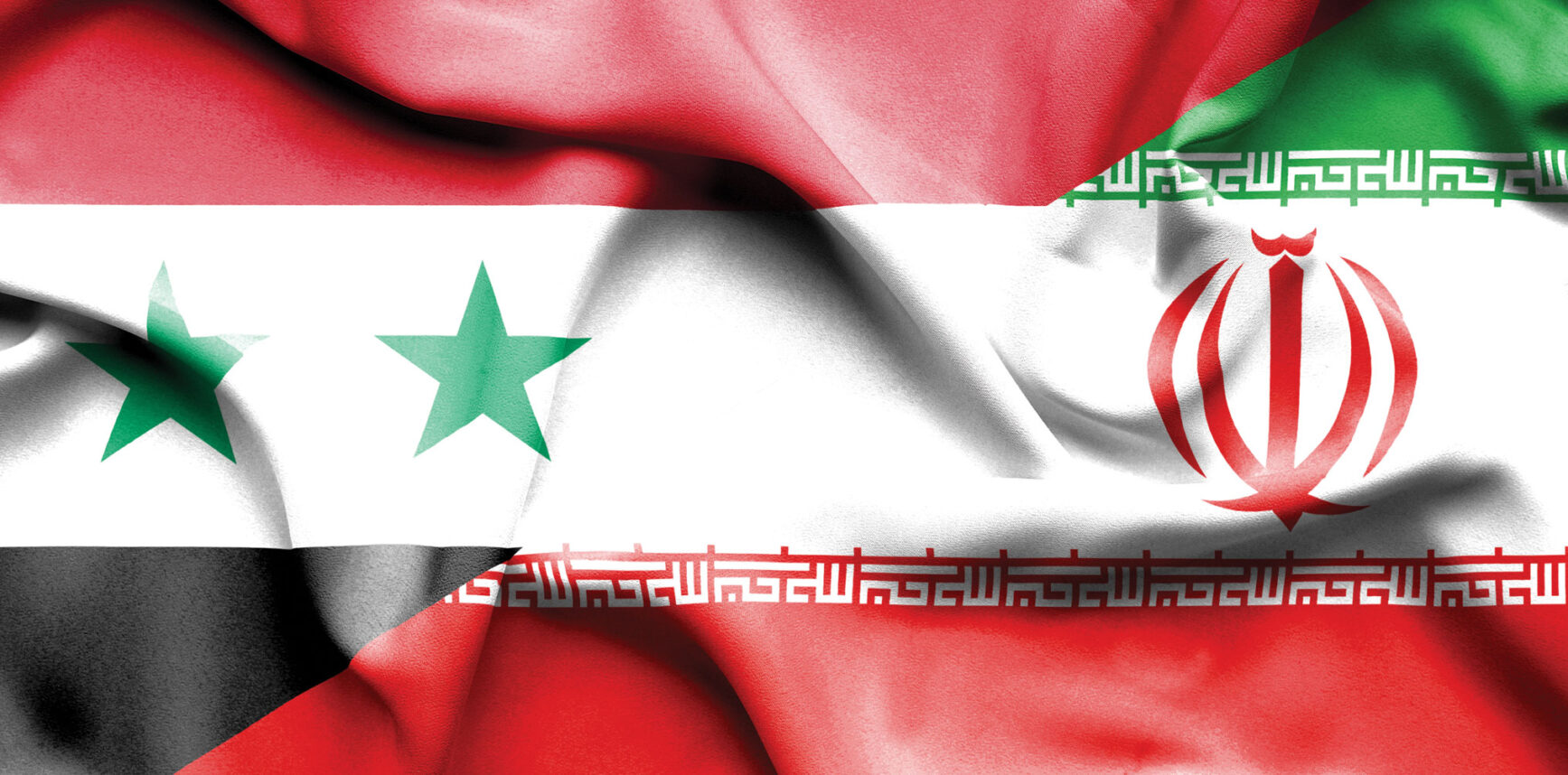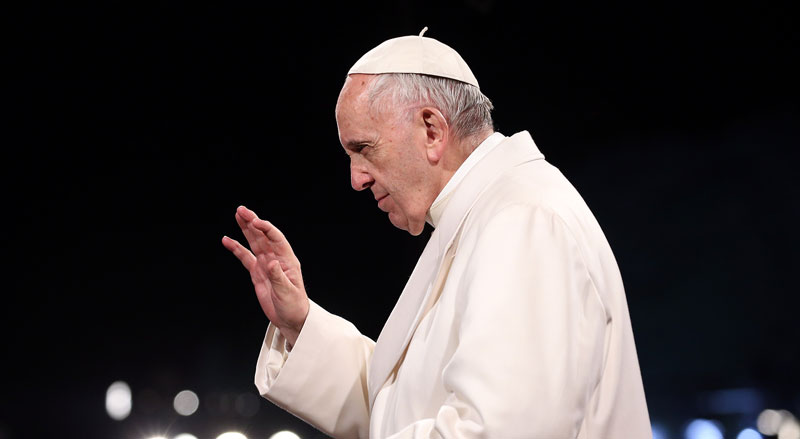
Left to right: President Bill Clinton and Andrew Friedman, LongBeach California, Feb. 1996
Passing the Torch
Two years after Yitzhak Rabin’s assasination, his legacycontinues in the internationally-recognized activism of a Brentwoodhigh school senior
By Naomi Pfefferman, Senior Writer
Andrew Friedman, 16, lives in Brentwood, but he is making adifference in the lives of teen-agers half a world away.
Two years ago, he founded CyberPeace, a nonprofit foundation thathooks up Israeli and Arab teens via computer in Israel. On Oct. 21,the Crossroads School junior traveled to London to accept aprestigious international peace prize for students whose workpromotes cross-cultural understanding.
Friedman prevailed over some 100 competitors, but he is shy andmodest while discussing his ambitious project. “I want to connectkids my age in the Middle East who don’t have much chance to talk toeach other,” he says. “Young people are still impressionable, so it’snot too late to change their opinions about each other, to get beyondthe hate.”
For Friedman, the CyberPeace idea began in September 1993 with thehistoric White House handshake between Israeli Prime Minister YitzhakRabin and PLO Chairman Yasser Arafat. The Internet projectcrystallized after Friedman’s own handshake with Rabin one morning inNovember 1994.
The son of a radiologist and a psychologist had decided tocommemorate the peace agreement by getting Rabin, Arafat andPresident Clinton to autograph a single photo. Rabin responded toFriedman’s request with an invitation to a private meeting. It was,Friedman says, the defining moment of his life.
 Andrew Friedman (in bar mitzvahsuit) with Yitzhak Rabin.
Andrew Friedman (in bar mitzvahsuit) with Yitzhak Rabin.
On that morning, Friedman, dressed in his bar mitzvah suit,arrived to the 14th floor of the Four Seasons Hotel, with a presentfor Rabin under his arm. The prime minister had just won the NobelPeace Prize, so Friedman brought him a book on the award, inscribedwith a congratulatory message. He passed through a metal detector andhallways crowded with surveillance equipment and heard an Israelisecret service-type speak into a walkie-talkie: “Ha yeled po” (“Theboy is here”).
Before long, Friedman was led to a doorway, and, suddenly, therewas Rabin. “I told him how much I admired him,” he says. “He probablydidn’t even realize what an impression he made on me. But I left,wanting to do something to promote the peace process however I couldas a teen-ager. A couple of months later, CyberPeace: Youth On-Linefor Peace in the Middle East was born.”
To begin, Friedman made dozens of telephone calls, perseveringuntil companies such as Packard Bell contributed computers and El Alagreed to transport the equipment practically free. He published anOp-Ed piece in the Los Angeles Times and arranged brief meetings withPresident Clinton, Arafat and Jordan’s King Hussein.
Then he got an international peace organization to hook him upwith a school on an Israeli kibbutz, one in Ramallah, and a third inan Israeli-Arab village. The organization and the schools must remainanonymous, Friedman says, because they’re worried about thepossibility of terrorism.
After Rabin was assassinated on Nov. 4, 1995, CyberPeace becameFriedman’s commitment to Rabin’s legacy. In summer 1996, he attendeda camp in Maine, Seeds of Peace, for Arab and Jewish youths, andfound that it was easier to discuss divisive issues once he hadgotten to know his fellow teens as people.
He’s hoping the same thing will happen among the 90 students nowparticipating in CyberPeace, which went on line this past February.So far, the students haven’t discussed politics — they stick touniversal teen-age interests such as TV, school, rock music andsoccer.
Today, Friedman is using his &’163;1,000 prize money, from theAmerican Community Schools, England, to buy new equipment forCyberPeace. He hopes that a Jordanian school will soon be on line andthat the teens can eventually correspond in real time.
“I envision a huge network of students throughout the Middle East,all connected in a virtual community,” he says.
What keeps Friedman motivated is a letter he received from Rabin,now framed and hanging in a place of honor on his bedroom wall. “Thefuture of the Jewish people,” Rabin wrote, “lies in the hands ofpeople like you.”
You can contribute to CyberPeace, c/o P.O. Box 492132, LosAngeles, CA 90049, or visit its website at www.cyberpeace.org.

Peace is a ‘Conversation about Shoes’
In summer 1996, Andrew Friedman, 16, attended a camp, Seeds ofPeace, for Arab and Jewish youths. He spoke about the experience inthis excerpt from his peace prize acceptance speech.
“The process of advancing from the superficial friendliness on thefirst day toward real friendship was a very painful one. It ofteninvolved lots of hurt feelings, tears and, the hardest part of all,listening. Anyway, there was one night that summer that, since then,has always stood out in my mind as a defining moment, the first timethat I really felt I knew what real peace is:
“It was just before bedtime, and on the bed next to mine, Mutasem,a Palestinian, sat around with Tuvi and Shaul from Israel, talkingcasually about their shoes. I was in my cot, thinking, listening, andit occurred to me that this is real peace. It’s nothinggrandiose, certainly not famous handshakes on the White House lawn –though that made this possible. Peace is normality. Peace happenswhen three teens who have been brought up to hate each other can havea friendly conversation about shoes.”
Remembering Rabin
Two years ago his assassination shocked the world and sent theLos Angeles Jewish community into mass displays of grief andsoul-searching. But as the second anniversary of Yitzhak Rabin’smurder at the hands of an Orthodox Jewish extremist rolls around Nov.4, only one major community event will commemorate the late Israeliprime minister. Perhaps fittingly, it will be held primarily inHebrew.
A “Tribute to Yitzhak Rabin” will be held Tues., Nov. 4 at 8 pm atthe Radisson Valley Center in Sherman Oaks.
The event will begin with poetry reading and songs. Then moderatorDr. Yehuda Handlesman will interview Israeli novelist David Grossman,author of “The Yellow Wind” and the newly published “The Zigzag Kid,”on the impact of Rabin’s death on Israeli society. Also appearingwill be Amnon Mitzna, mayor of Haifa and a former commander ofIsraeli forces on the West Bank during the intifada; Shimon Erem,chairman of the Council of Israeli Organizations, sponsors of theevening; and Meir Fenikstein, organizer of the Israel Film Festival.Proceeds from the evening will go to the Kadima Hebrew Academy. Fortickets and information, call (310) 371-2615 or (818) 783-3090.






















 More news and opinions than at a Shabbat dinner, right in your inbox.
More news and opinions than at a Shabbat dinner, right in your inbox.